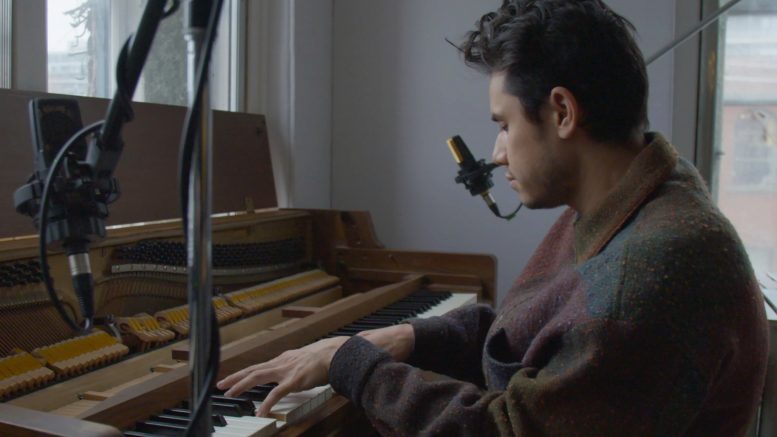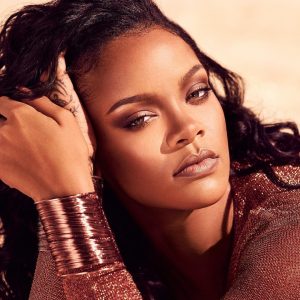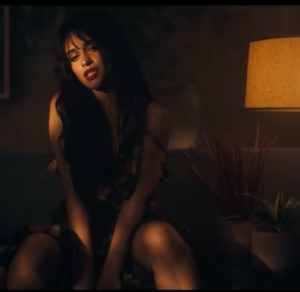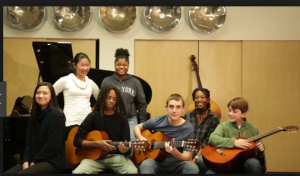Nick Krewen
The Toronto Star
July 12, 2019
He’s the go-to guy when you’re a pop music superstar looking for a hit – and he’s from Toronto.
Frank Dukes may not be a household name to the general populace, but the 35-year-old songwriter and producer is on the speed dial of everyone who is anyone in pop music these days.
Lorde, J. Balvin, Post Malone, Rihanna, Eminem, Travis Scott, Camila Cabello, Kendrick Lamar, Logic, The Jonas Brothers – as well as local Six-Gods Drake and The Weeknd – have used his services to great degrees of success.
One of the many reasons they’re knocking on Dukes’ door is for his “special sauce” – a knack for creating original loops, beats and samples that are irresistible, such as the Cuban-inspired piano motif that carried Cabello’s “Havana” to No.1, or the snappy handclapped rhythm of another chart-topper, The Jonas Brothers’ “Sucker.”
“I try to create something that draws you in without overthinking it,” Dukes said recently from New York, where he’s working with Frank Ocean.
“Something that resonates with you automatically that you don’t have to think about. That’s what the best pop is about: Michael Jackson, The Beatles, Nirvana – these guys made some of the most authentic and popular music.”
And nobody’s intuition at the moment seem more organic than Dukes, who was born Adam Sweeney and has future projects lined up with James Blake, Post Malone and Camila Cabello.
“I pick things that excite me,” he says. “As I change and grow, different things excite me and I just follow where that leads me.”
Dukes’ impeccable pedigree comes from a lot of groundwork as a budding DJ when he was attending St. Robert Catholic High in Thornhill. Growing up “in a pretty average suburban middle-class home,” he became obsessed with hip-hop, studying the genre’s production icons – Gang Starr’s DJ Premier, Wu-Tang Clan’s RZA, Slum Village’s J Dilla and Pete Rock.
“I would really dissect how they were taking samples and flipping them,” Dukes recalls.
He later scrutinized more mainstream pop producers Phil Spector and George Martin and ambient and obscure studio wizards Brian Eno and David Axelrod.
Then Dukes began extracting his own samples.
“I was selling beats to local rappers for a few hundred dollars here and there,” he recalls. “I worked a part-time job at the University of Toronto setting up projectors in classrooms. I did a little bit of this and that, but mostly I’d find things in music that I could sustain myself with.
“Before that, I’d sell and trade records with people – whatever I could do to maximize my time into making music.”
Using MySpace as a platform, Dukes eventually hustled his way into circles that included another fledgling producer – Matthew “Boi-1da” Samuels – and a promising rapper named Aubrey “Drake” Graham.
“With Drake, we connected through an artist we both knew at the time named Voyce (Aion Clarke,) whom I started making some beats for,” Dukes recalls. “I gave him some beats and a couple of little things happened.”
Dukes landed the “Money” remix on the Drake mixtape Room For Improvement – and also enjoyed some success placing beats on Lloyd Banks and Curtis “50 Cent” Jackson projects – including an unauthorized one on a 50 Cent mixtape that featured the Brooklyn, vintage soul collective Menahem Street Band.
“It was a time when an artist might use your beat and it would be free, because you had no recourse,” Dukes recalls.
“When 50 Cent used my beat, I reached out to the band and said, ‘Hey, just so you know, I didn’t get paid. That’s why we didn’t clear the sample. But I love your band.’”
Part of the Daptone Records family that included Sharon Jones & The Dap Kings and Charles Bradley, The Screaming Eagle of Soul, Menaham invited Dukes to hang out in their New York studio for a couple of months.
“It opened my eyes to a different way of recording,” the Grammy-nominated Dukes remembers. “I began recording live music and that’s where I started to make my own samples. Then I started giving my ideas to other producers. A new period of collaboration opened up a lot of doors for me. It evolved the way I look at the whole process: putting all the pieces together in a way that is greater than the sum of all its parts.”
This led to his next big break: providing an original, atmospheric sample to Drake’s hit single, “O to 100/The Catchup” that first captured the closest thing to Dukes’ signature sound, if there is one.
“That was the bridge between everything,” admits Dukes, who owned a studio in the Annex.
“Once ‘O to 100’ happened, it sort of spun this chain reaction – really the first big record that I was a part of. It was a big life-changing thing for me.”
The calls came in earnest, and Dukes suddenly found himself in the midst of sessions with Jeremih & J. Cole (“Planez,”) Rihanna (“Needed Me,”) Mac Miller (“Perfect Circle/God Speed”) and Kendrick Lamar (“untitled 07 – 2014-2016) to name a few.
He’s also done plenty of work with Drake: If You’re Reading This, It’s Too Late, More Life, Views and What A Time To Be Alive, the rapper’s collaboration with Future, all bear the stamps of Dukes’ compositional and production smarts.
“There was a whole wave of music I was making with Boi-1da and (producer) Vinylz (Anderson Hernandez.) I got along great with those guys – we had a lot of records together.”
He’s been so productive that a recent Billboard profile lists 44 Dukes collaborations on their Hot 100 charts within a five-year window.
Dukes has also been innovative in terms of compiling and creating his samples into an archive called Kingswood Music Library. Easily licensed and cleared to use on recordings by artists who negotiate an additional royalty if the sample is included on an album or single, artists like Drake and Kendrick Lamar have used it as a resource.
Another big milestone for Dukes was 2018’s “Havana,” the hit single from ex-Fifth Harmony member Camila Cabello that largely established her as a solo artist.
“That’s probably the biggest record I produced by myself,” notes Dukes. “Camila’s project was the first that I really took on as executive producer – and she was a relatively new artist at the time. She’d been in Fifth Harmony and had maybe one or two songs on her own, but she wasn’t pleased with how they were received and didn’t feel like they really represented her.
“I think her album showed people that I could oversee the entire project and help break a new artist from the ground up in a very major way.
“Since then, it’s given me the opportunity to be more involved from the beginning with projects.”
Although Dukes, married with two kids, now calls L.A. home, he hasn’t forsaken his Toronto roots.
He still has tight connections with local artists he helped nurture – Bad Bad Not Good, Mustafa the Poet, River Tiber and Charlotte Day Wilson – and in December returned to the city to record a benefit sampling project with students of the Regent Park School of Music (RPSM).
The brainchild of Rana Chatterjee, Toronto-based associate creative director at advertising agency BBDO Canada and a good friend of Dukes, the project – called Parkscapes and available through Kingsway Music Library – consists of previously written Dukes samples performed by RPSM students. All proceeds from Parkscapes – including licensing and royalty payments – will help fund the music school’s programs.
Dukes, who hopes to turn the Parkscapesconcept into a series of releases that will benefit other communities around the world, says he wanted to give back in a meaningful and impactful way.
“I’m blessed to wake up and do something that I love every day,” he says. “Especially being connected directly to Regent Park, I’m seeing firsthand a lot of the challenges the kids face.
“I think I’m in a position to really help shift people’s perspective and influence things for the better. For me to take a few days to do this was really no big deal: if you can change someone’s perspective, they can change their lives and the trajectory of their lives as well.”
He’s also looking to influence lives outside of music, fueled by the same curiosity that served as a catalyst to his recording endeavours.
“There’s a lot more that I want to do,” Dukes insist. “ There are ideas that I want to develop, companies I want to build and organizations that I want to get started.
“I’m definitely interested by a lot of things outside of music – technology, film, quantum physics – and I’m realizing that I can put my creativity into anything I kind of choose to.”
As one might imagine, Frank Dukes doesn’t have to hustle for work anymore due to his track record.
“Now I have a really big body of consistent work that I’m proud of I think speaks for itself and allows people to discover me through my music. “
So what is the one piece of studio equipment Dukes can’t live without?
“My brain,” he chuckles. “There’s nothing else I need.”




